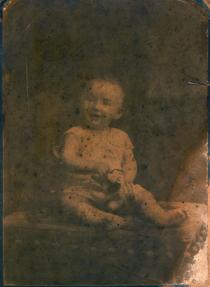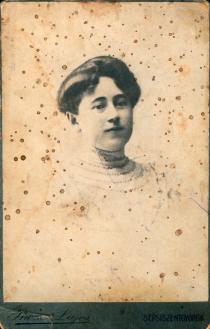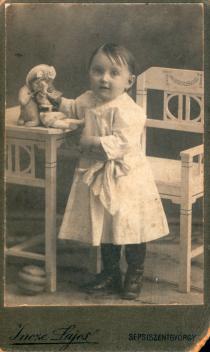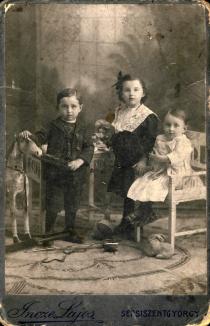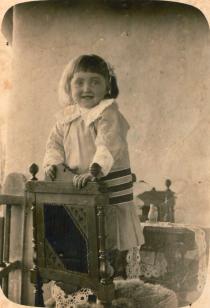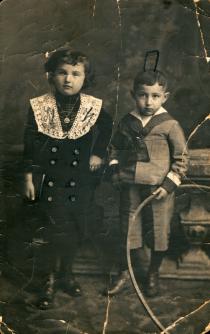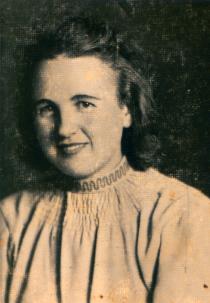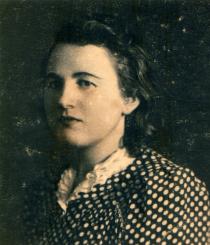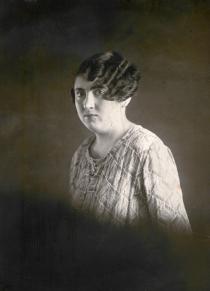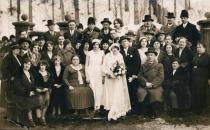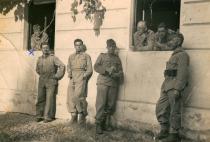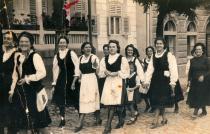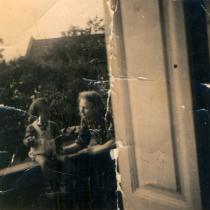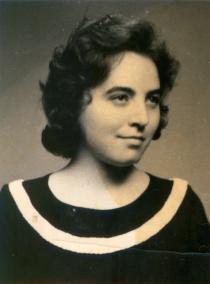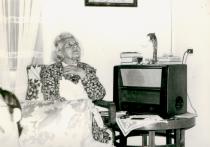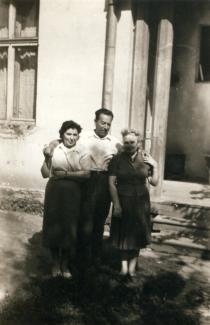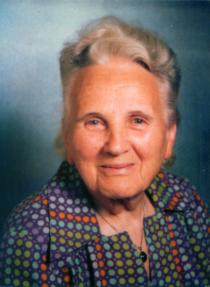This is me Alice Kosa at home, in our apartment in Sepsiszentgyorgy.
We lived there [in Brasso] only for two years, and in 1940 we came back to Sepsiszentgyorgy.
In Sepsiszentgyorgy we lived in the Kozfurdo street - it [the house] is still there -, because Romanians left, and we rented a nice, one-storied apartment surrounded by a garden, and a large field in front. It had three rooms, kitchen and bathroom.
It belonged to a Romanian family, the Romanian man had a Hungarian wife, but she felt to be more Romanian than her husband.
Well, and they left [in 1940]. Romanians left from Sepsiszentgyorgy, maybe one or two had the courage to stay.
Because Szeklers were bad, they smashed everyone's window, they [Romanians] didn't dare to go out.
The Romanian entrusted somebody - a Hungarian man -, we paid the rent through him. And we lived there.
I liked languages very much. I was engaged in seven languages counting my mother-tongue too: Hungarian, Romanian, Latin, German, French, then I attended English and Esperanto courses, but I learnt more privately than on courses.
One of my students' father came and told me: 'Will you tell me how many languages you speak?'
I say: 'I will tell you how many languages I was engaged in. Counting my native language I studied seven languages.
In school, in courses. How many do I speak? None.' I don't speak any.
Now I can really say that I'm searching for words. That's also why I speak slowly. But no wonder, my husband died seventeen years ago, and since then I live alone.
I have no one to talk to, I can talk only to myself. And often I can't recall so simple, every-day words.
But then, after a few hours or the next day, without thinking of it, I even forgot that the previous day I didn't recall it, I'm doing something, and all of a sudden: Elvis Presley - I didn't remember this name either one day. The mind is magnificent, really magnificent.
I learnt German only in school. But the German language is very similar to the Yiddish language.
It's distorted, but it's similar. And it was interesting, that my grandmother [Franciska Feder] talked to her sisters - they were four in Sepsiszentgyorgy - in Yiddish, so that I and my brother wouldn't understand.
I suppose Yiddish was even their mother-tongue, because they always turned their speech into that.
But it's so interesting, what is language? If you live in it, if you hear it day by day, without being taught, somehow you understand it automatically.
Without being taught, we didn't speak Yiddish, but we understood everything they were saying.
We heard it daily either from one or the other, and we understood everything.
I learnt German in school, but since I understood Yiddish already, I learnt German easily.
[After my retirement] I studied Esperanto, I attended two courses of English. But I attended tailoring course as well.
We didn't quite learn to tailor, but we were drawing on paper.
The teacher was a man, he took the measures, and he drew on the board, we in our copy-book with a pencil, one square was one centimeter, that was the base.
I still have copy of that book.

